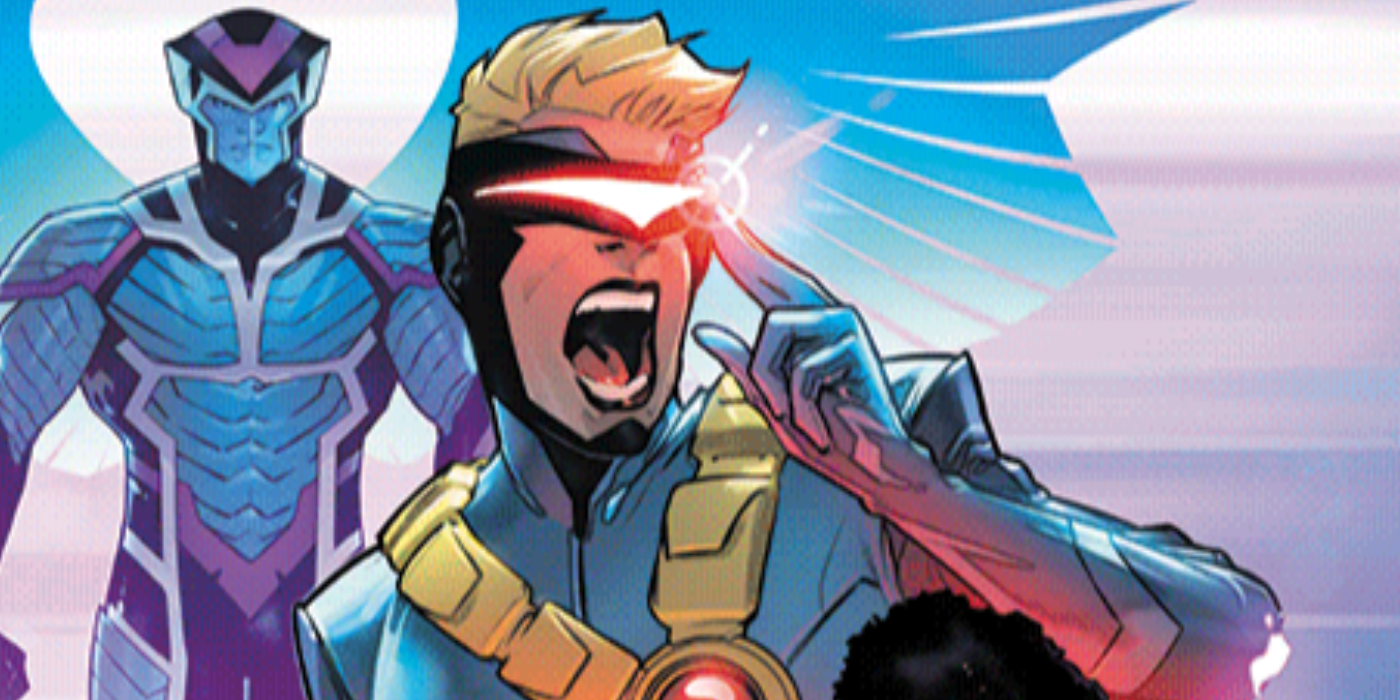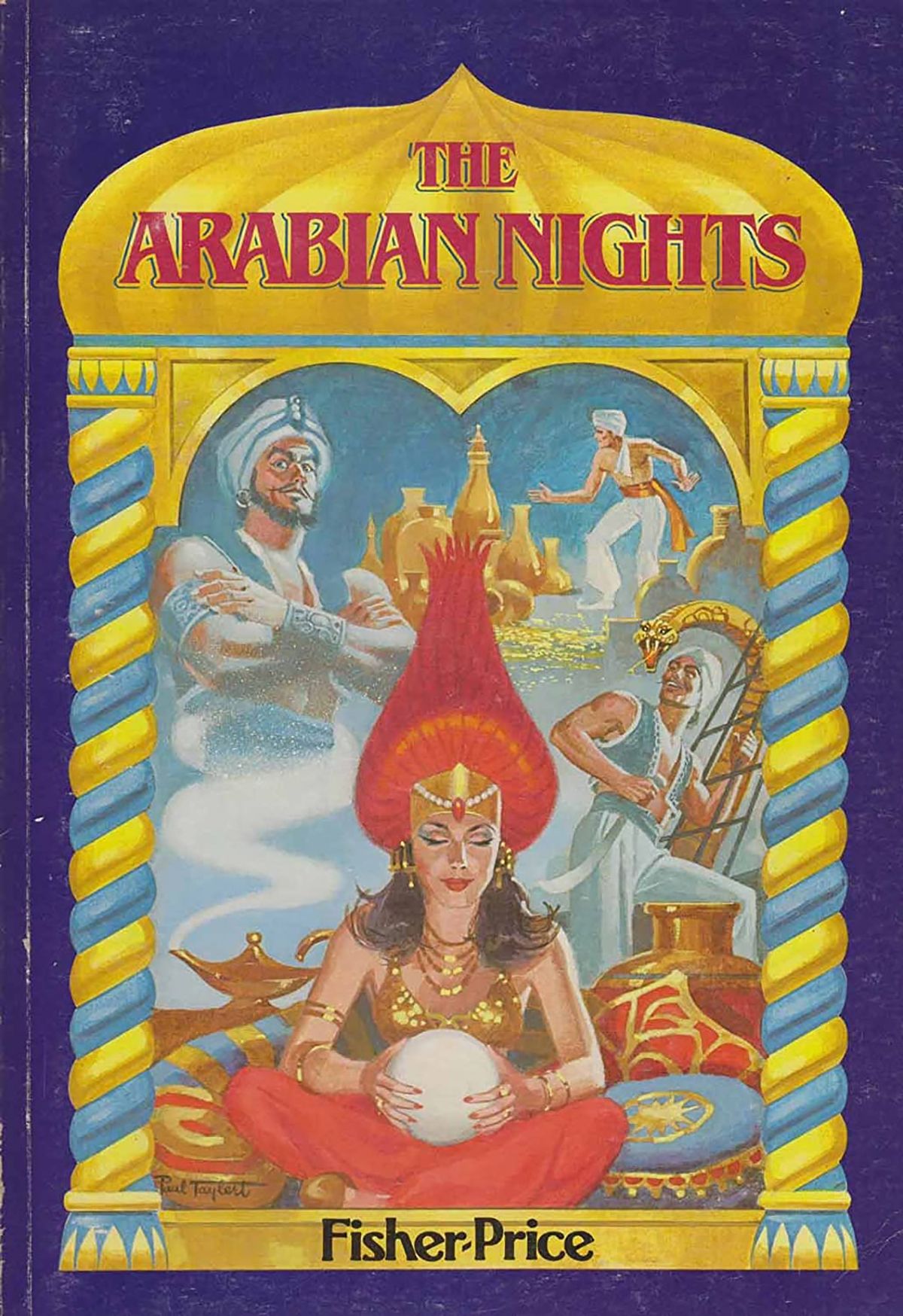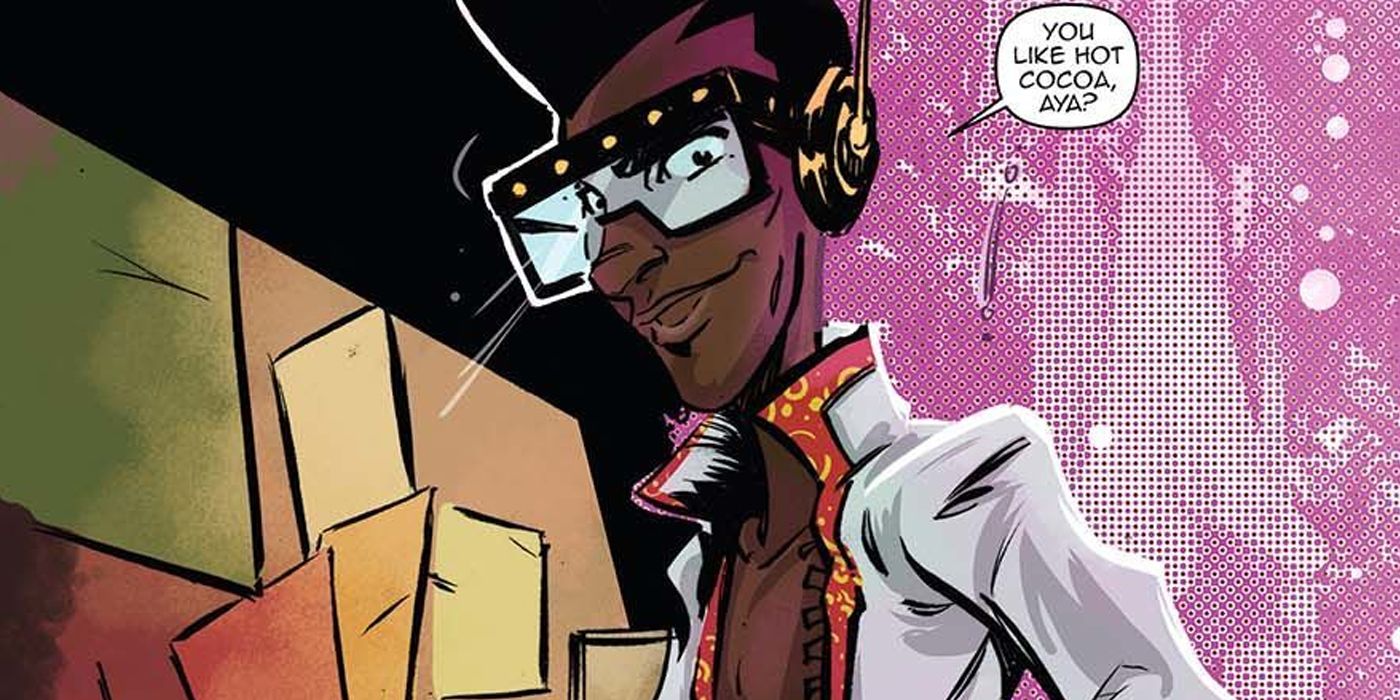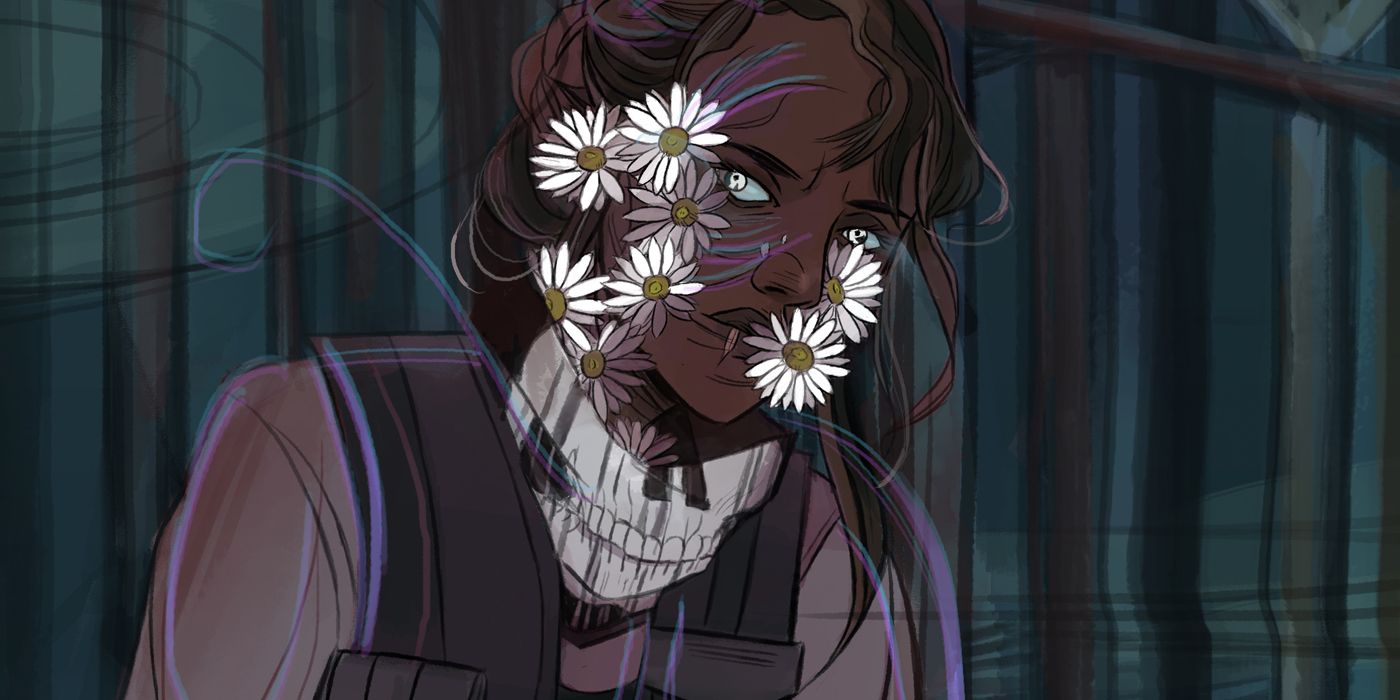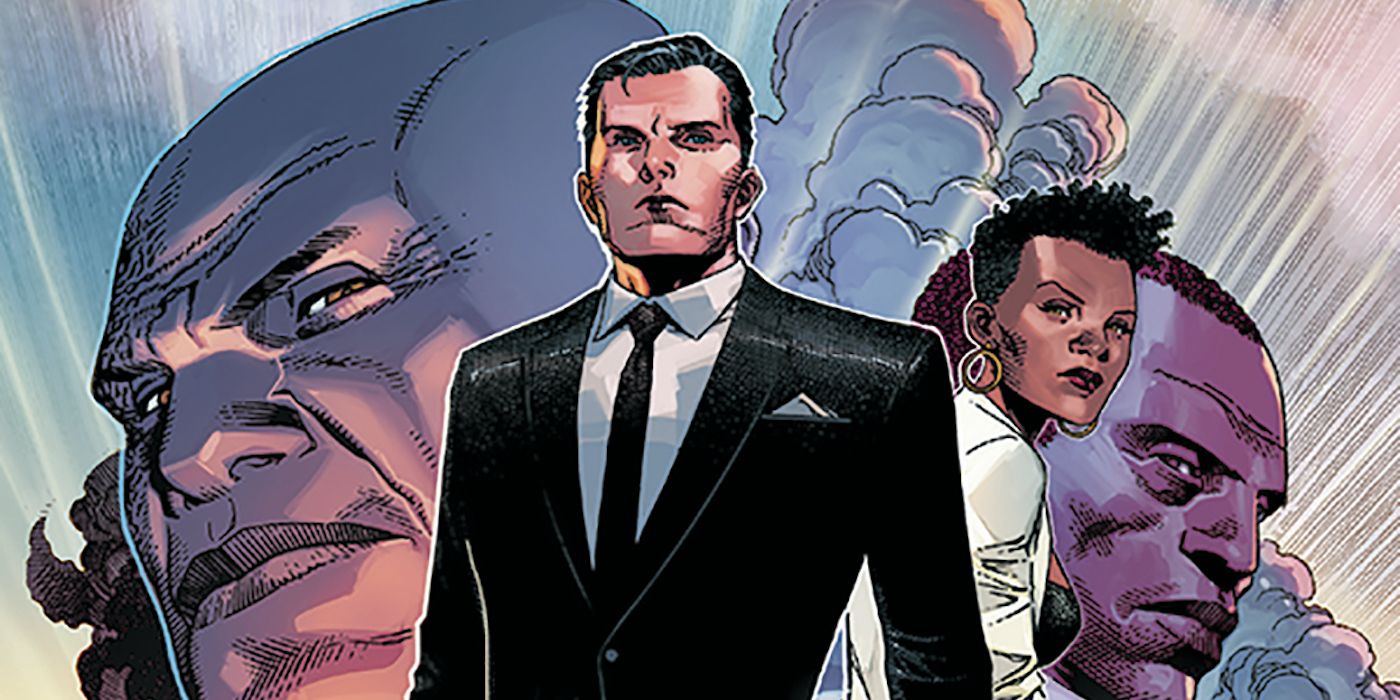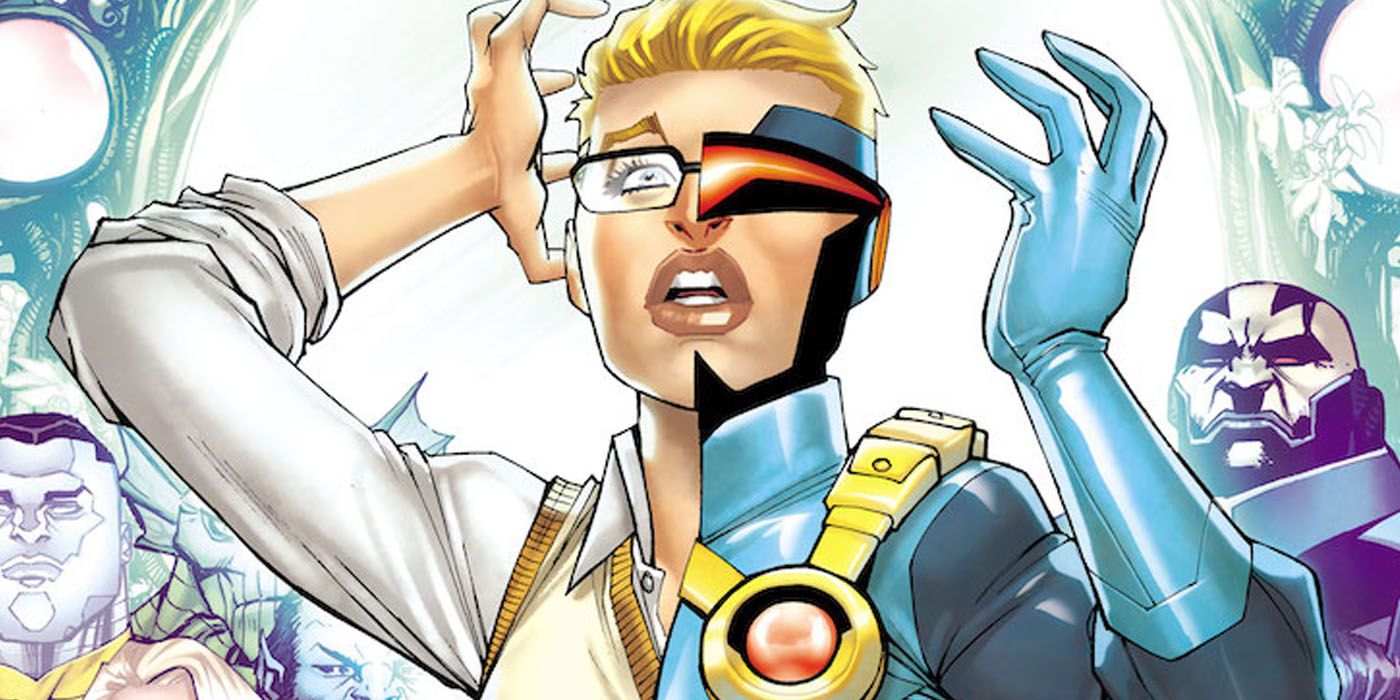One of the most prolific new talents in comics is writer Vita Ayala. Having written for virtually every major comic book publisher in the United States, including Marvel, DC, Valiant and Dynamite, Ayala has made a name from themself, mixing creator-owned titles with licensed series -- like the upcoming Children of the Atom.
In an interview with CBR, Ayala discussed being a nonbinary, Afro-Latinx writer, how they found inspiration in comic books and why it's important to keep the medium and its stories fun and engaging -- without shying away from personal, important messages.
CBR: What was it about the comic book medium that made you a fan and made you want to become a storyteller yourself?
Vita Ayala: Well, one kind of piggybacks off the other. I've been "reading comics" since before I could read; I had a couple comics as a kid. I'd sit there and make up the stories and dialogue as I flipped through these pages. Later on, my parents got me those Fisher-Price Classic Comics with cassette tapes -- they made them with Marvel Comics, which was cool. I still have the physical comic but I don't have the cassette tape anymore; I had a copy of The Arabian Nights, with the cassette tape that would read it you. I wore the tape out. I loved that thing.
Weirdly enough, it was one of the first places where I saw Black and Brown people just living, just being heroes and doing all these things. I was lucky in that comics was such an important medium to me right from the beginning and then I saw myself represented -- not me, specifically, but Brown people. I won't get too much into this story but I also misidentified some white people as Brown, because I thought Wonder Woman was Puerto Rican. [Laughs] To me, it was something that I could engage with -- even when I couldn't read -- and it got me interested in story. I've been telling stories to other people and myself ever since.
When I was in college for a brief period of time, I was in a graduate program for education because I was interested in reading and literacy and kind of how that related back to my own community. I had also worked at a comic book shop for a long time. So I understood that comics for everyone, but especially for children, were a way to get them interested in reading and reading is a very important part of participating in things critically in society. The idea that you could use comics as a gateway drug to literacy was really appealing to me.
Then, when I found myself graduated from college and compulsively writing -- because that's what I do -- and back to work at a comic book shop, I didn't go through with my graduate degree because I lost my faith in the system pretty quickly. I hated school as a kid, but that doesn't mean I can't be involved in the thing that made me love reading.
Is that why you initially studied education was well? To co-opt and empower where you saw flaws?
Yeah, that was part of it. I also just had a really difficult time at school, but there were a couple of teachers that straight up saved my life. [Laughs] So, I thought, "I like learning. Maybe I could be that person for other people and show them learning can be good even if school is a pain in the ass." [Laughs] I just couldn't do it. Maybe I'm weak, but the school system -- looking at how it was set up was so disheartening, so I was like, "Well, if I can't do it the regular way, I'm going to kick down the backdoor somehow."
At this point, you've written for almost every major game in town: DC, Marvel, Image, Dynamite; the list goes on. Is there a difference in how you approach things when you craft your own story, with something like Quarter Killer and Dead Beats, versus tackling a licensed property?
There's definitely different considerations. With Quarter Killer or the story in Dead Beats, I'm usually working very closely with my co-creator from the beginning; if I even have a full concept formed at all, that's very rare but, even then, it all changes because I'm working with my co-creator. Whereas with my licensed work, I'm usually pitching and scripting at least one script without necessarily knowing who I'm working with. If it's a healthy five- or six-issue series, then over the course of those issues, I will be able to interact with the artist and kind of adjust what I'm doing to what they want to do as well.
That's kind of there from the jump with a creator-owned book, which is really nice. With Quarter Killer, we worked on just concepts and figuring out how we wanted to say what we wanted to say for, like, two years or more before we actually got down to it and that's the strength of it. With licensed work, it's cool because I feel like you're doing all this heavy lifting in creator-owned work where you have to build an entire universe and all of the little nitty, gritty details. With licensed work, you're playing with someone else's toys in the sandbox that they've created, trying to figure out how to do it in a new and exciting way while telling stories that make sense in that kind of paradigm. I like both! [Laughs]
But I don't have to worry about developing visual language at all ever because I'm a writer, although I do try to work very closely with my collaborators. I don't have to figure out how Wonder Woman's powers work; I can Google that if I don't already know. [Laughs] When I'm doing creator-owned work, I'm doing research so I can build something new and when I'm doing licensed work, I'm doing research to make sure I'm not retreading old ground while staying as true to the character as possible. When I'm creating a character, if there's no truth, I guess I better figure it out! [Laughs]
You mentioned you found a sense of community in Marvel Comics. Was co-creating something like The Wilds an effort to expand that sense of LGBTQ community representation into the post-apocalyptic genre and comic book medium?
I guess in a way; I loved both Marvel and DC as a kid. I was just drawn to character. Marvel had a bunch of Black and Brown characters and DC had well-developed female characters and queer characters -- I'm all about those. One of things that just doesn't make sense to me is when people make up entire universes and it doesn't include Brown people and queer people; it just doesn't make sense to me. Like, we're real, we're right here and we're at any big event in history. We're right there.
So that was one of things that was on my mind when I wasa foolishly thinking about [doing] a zombie comic in the time of The Walking Dead. [Laughs] Besides the core story, what's a perspective we haven't seen? The answer, from my perspective and from [co-creator and artist] Emily Pearson's perspective, was that we aren't the protagonists ever. So just that small shift in P.O.V. was just enough to make it a completely different story. That is one of things that helps The Wilds and -- being in conversation with the books that are around it -- we're not just telling the same story over again.
I think that there's seven stories that we tell as people and I think what makes everything fresh and meaningful is that everyone brings their own perspective. The Walking Dead is huge. I've seen it everywhere. Well, I can't do that. I'm not Robert Kirkman. [Laughs] I can't write that book, but I can write a version that's about queer, Black and Brown people. I can do that.
Does that come with its own sense of heightened responsibility?
I think so. I think there are parts of it [that do]. Be as intentional as you can be and be as kind as you can be when writing your book. I've said many times that if you're Brown and queer, you're not dying in my book. I will torture you in other ways, because that's what it means to be a creative, but I'm not going to kill you because I think that we've had enough; we should should be functionally immortal now. Figure out better ways to get drama into your story.
But yeah, I wanted to speak about the communities I was a part of in The Wilds. It's impossible to represent every single person in your work, especially in a single character, but I wanted to get as many different people into the book as possible so that they could see themselves and feel like we were talking to each other, if that makes sense.
In addition to having that invitational quality, I've noticed throughout all your work that I've read, like Morbius or James Bond, there's always a fun quality reminding the readers that, for the most part, this is supposed to be a good time. Is that something that's always been important to you?
Yeah, I think that is a thing that we forget! I'm not one of those people who regularly goes, "Dark and gritty is useless and needs to get the hell out of here!" That's not really my personality. On occasion, I get tired of certain things, but I think that everything has its place. When we get absorbed in something being really serious, it can lose the heart of it. The reason horror works is because it has jokes and can be funny too, you know? [Laughs]
I feel like the reason comics are a thing people go back to is because they enjoy them! [Laughs] I think you should enjoy comics. I think you should enjoy learning. I think you should enjoy life. So, I don't want to make a thing that isn't fun to read, because why would I ask you to read that? There's got to be some reason! I like having fun, y'all! [Laughs]
I know it's like picking your kids, but what's something you're particularly proud of in the work you've done so far?
That's a hard thing to answer for two reasons: One, it is like picking your kids. I try to put my all into everything that I do. But also, the kind of joy that I get out of projects is very different, depending on whether it's creator-owned or licensed. When we finished this arc of Quarter Killer, I was fucking exhausted. That team -- we built a world and we had to think about every single thing that appeared and then we had to remember all those things, not just to do callbacks, but to play with themes as well as the particulars. It was really exhausting! But, at the end, it was beautiful and I'm proud of it; look at what we did!
Morbius, since you brought it up, is a great example. I struggled and enjoyed writing that book because it's the first book he's had since, like, 2013. That's a big deal! I think I'm the first Black, fem person to write Morbius? That might not be true, but I think that's true and that's a lot of pressure! I love an angsty vampire; I'm a mark for that kind of shit. I'm the target audience for that kind of shit. But he's a super angsty, self-absorbed man. He's so angsty and we want to shake the shit out of him and go, "Bro, you are the architect of your own destruction."
So to be able to write that story and work with Marcelo Ferreira and Roberto Poggi and come out the other end and have people go, "I didn't hate it!" That's beautiful. [Laughs] He's such a self-indulgent protagonist. I just felt very proud. I had this one follower, after it was announced, that kept going into my mentions going, "Morbius is my favorite! Don't fuck it up!" I'm like, "Okaaaay. Cool." When it first came out, he went, "I picked it up...so far, so good. Don't fuck up the next one!" I'm very proud I didn't fuck it up for that one guy. He was my North Star! [Laughs]
I'm a comics fan, so I know, but I wrote an X-Men book and every character is somebody's favorite character. That is a lot of pressure! When you're part of a project and at the base minimum, nobody's asking you to you to, like, die, you've done it! Good job, team! [Laughs] I love comics, man.
I don't know if there's anything you can tease about Children of the Atom...
I will say, I really love these characters and I really love working on them with Bernard Chang and with our editor Chris. When you're creating characters for licensed work, it's like you're raising someone else's kids. Like, I created this thing, but it's not mine. So, I try to stay as detached as possible because I know that I will have to let them go. I couldn't maintain that distance with these kids because I really love them and I really hope other people like them too.
To close us out, Vita, are there any other creators of color or queer creators you'd like to shout out, or just leave a message to our readers?
I mean, there's so many incredible Black and Brown creatives working right now, trying to get in, and a lot of community organizers doing more work than I could ever do. Regine Sawyer, who's the founder of Women in Comics Collective International, is an incredible community organizer as well as a comic book writer herself; she's on Lockett Down Productions, which is a comic publisher. What I really want to tell people is if you want to check out Black emerging artists, watch things like #DrawingWhileBlack, check out all these initiatives because I can only shout out to people that I know, but there's so many people out there who are incredible.
There's Cartoonists of Color Database run by Mari Naomi, who is another person to look out for: She's always doing incredible work. It's not a complete database of every cartoonist of color but it sure tries its best! [Laughs] It's really, really great. They have a feature page, a search function; it's really quite incredible, so I suggest that as well as #DrawingWhileBlack.

